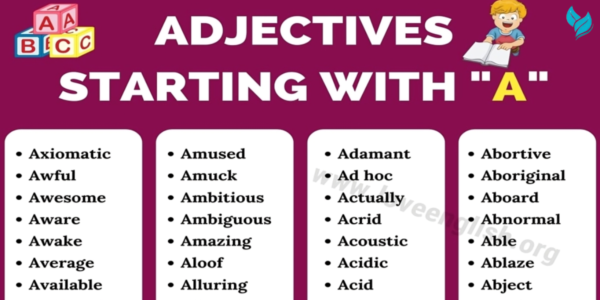Everyone encounters challenges in their academic journey, and receiving bad grades can be a disheartening experience. Whether it’s a one-time issue or a recurring problem, bad grades don’t have to define your future. They serve as a wake-up call, an opportunity to reflect and improve your approach to learning.
In this comprehensive guide, we’ll discuss what causes bad grades, how to address them, and most importantly, how to bounce back from them. We’ll also answer common questions related to dealing with bad grades, offering practical tips to help you regain control of your academic success.

Understanding the Causes of Bad Grades
Lack of Study Habits
One of the primary causes of bad grades is ineffective study habits. Many students struggle to develop the right strategies for understanding and retaining information. Simply cramming before exams or passively reading textbooks often isn’t enough. Active learning strategies like summarizing material, asking questions, and practicing problem-solving are key to success.
Procrastination
Procrastination is a common trap for students of all levels. When you delay studying or completing assignments, you put yourself at risk of receiving bad grades. Last-minute cramming can lead to poor retention and increased stress, both of which negatively impact performance.
Lack of Motivation
Sometimes, students receive bad grades because they lack motivation. If you don’t feel connected to the subject matter or are unsure about the relevance of your coursework to your future, it can be challenging to stay focused. This disinterest can translate into poor performance.
Personal Issues
Life outside of school also plays a significant role in academic performance. Personal issues like family problems, health concerns, or financial difficulties can distract you from focusing on your studies. Stress and anxiety resulting from these factors can lead to bad grades.
Learning Difficulties
Not all students learn in the same way. Some students may have undiagnosed learning disabilities, making traditional methods of instruction more difficult to grasp. In these cases, bad grades may be a sign that specialized learning accommodations are needed.
How to Bounce Back from Bad Grades
Identify the Root Cause
The first step in improving your grades is to identify why you received bad grades in the first place. Take an honest look at your study habits, personal circumstances, and academic approach. Self-awareness is crucial for developing a plan to improve.
Create a Study Schedule
Once you’ve identified areas of weakness, create a structured study schedule. This helps eliminate procrastination and ensures that you allocate sufficient time to each subject. Break down your tasks into manageable chunks and set deadlines for each.
Seek Help from Teachers and Tutors
If you’re struggling to understand certain concepts, don’t hesitate to ask for help. Teachers and tutors are there to support you, and they can provide valuable insights on where you need to improve. Attend office hours, join study groups, or seek one-on-one tutoring if necessary.
Practice Time Management
Time management is key to academic success. Use tools like planners or digital calendars to track assignments, test dates, and study sessions. Prioritize your most important tasks and avoid multitasking, which can reduce efficiency.
Adopt Active Learning Techniques
To prevent bad grades in the future, adopt active learning techniques. These may include:
- Taking Notes: Summarize key points in your own words.
- Practice Quizzes: Test yourself regularly to check for understanding.
- Teaching Others: Explaining concepts to a peer can reinforce your own learning.
Stay Motivated
Maintaining motivation is crucial, especially if you’ve struggled with bad grades. Set specific, achievable goals and reward yourself for progress. Keeping the bigger picture in mind, such as long-term career goals, can also help you stay on track.
Descriptive Categories of BOT-2
Address Personal Issues
If personal problems are affecting your academic performance, it’s important to seek support. Speak to a counselor or advisor who can provide guidance on balancing your personal life and academics. Many schools also offer mental health resources to help students manage stress and anxiety.
Evaluate and Adjust as Needed
Improvement is a process, so it’s essential to evaluate your progress regularly. Look at how your new strategies are affecting your grades and adjust your study plan as needed. Learning is a lifelong journey, and setbacks like bad grades are just part of the process.
FAQs?
What should I do if I get a bad grade on an exam?
If you receive a bad grade on an exam, don’t panic. First, review the exam to understand where you went wrong. Were there specific concepts you didn’t understand? Did you run out of time? Once you identify your mistakes, work on improving your knowledge in those areas. Consider meeting with your teacher to discuss strategies for better performance on the next test.
Can bad grades affect my future?
While bad grades can have an impact, they don’t necessarily dictate your future. Many successful people have encountered academic challenges at some point in their lives. The key is to learn from the experience, make improvements, and show consistent progress. If you’re applying for college or jobs, emphasize how you overcame challenges and improved your performance.
How can I prevent bad grades in the future?
To prevent bad grades, focus on developing strong study habits, staying organized, and seeking help when needed. Regularly review your work, practice active learning techniques, and manage your time effectively. Additionally, take care of your mental and physical health, as well-being plays a crucial role in academic success.
Is it possible to recover from bad grades in college?
Yes, it’s possible to recover from bad grades in college. Start by assessing your current academic standing and work on improving your GPA by performing well in future classes. Take advantage of tutoring services, office hours, and study groups. Colleges also offer academic advisors who can help you create a plan for recovery.
How do I talk to my parents about bad grades?
Talking to your parents about bad grades can be difficult, but honesty is key. Explain the reasons behind your performance and share the steps you’re taking to improve. Show them that you’re committed to doing better by outlining a plan to raise your grades. Your parents will likely appreciate your proactive approach.

Conclusion
Bad grades can feel overwhelming, but they don’t have to define your academic journey. With the right mindset and strategies, you can overcome setbacks and improve your performance. Whether the issue is procrastination, lack of motivation, or personal challenges, understanding the cause of your bad grades is the first step to turning things around.
By identifying the root cause, creating a study schedule, and seeking help when needed, you can bounce back from bad grades and achieve academic success. Remember, learning is a process, and setbacks like bad grades are just part of the journey.











